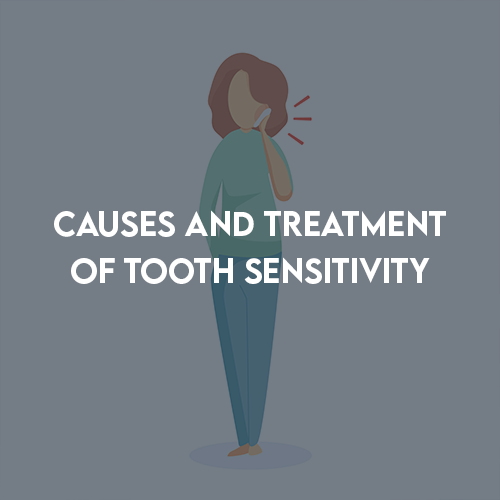Causes and treatment of tooth sensitivity
Tooth sensitivity is caused by damage to the enamel laker covering the teeth or by exposure of tooth root surfaces as a result of gingival recession. It is a condition that is noticed by eating hot, cold, sweet or sour foods. From time to time, breathing cold air through the mouth triggers tooth sensitivity.
Causes of tooth sensitivity;
1- Damage to the enamel layer due to over brushing,
2- due to poor oral hygiene, accumulation of tartar in the gum line and the acid formed by the microbial layer formed in this area affecting the tooth surface,
3- untreated tooth decay,
4- exposed root surface as a result of gingival recession,
5- gingival surgery exposing the root surface of the tooth,
6-pressing or grinding of teeth,
7-cracked or fractured teeth.
What is the mechanism behind all this sensitivity?
Teeth are made up of enamel,dentin and nerves. Enamel protects the tooth from external stimuli. The dentin has a more permeable structure and the stimuli that reach this point can be transmitted to the nerve, causing sensitivity/pain problems. The visible part of healthy teeth is covered with enamel and protects the tooth from possible sensitivity factors. There is no enamel in the root. It starts right at the dentin. Because the roots of healthy teeth are covered with bone and gum, factors that can cause sensitivity cannot reach here. It is under protection.
In unhealthy teeth, the protective effect of the enamel can be lost. Or the gingiva around the tooth may have receded, exposing the dentin at the root surface. Stimuli that reach the dentin pass through the tubules and reach the pulp, causing sensitivity.
If caries also causes the dentin to decrease, the symptoms increase as the problem approaches the pulp.

Diagnosis of tooth sensitivity
It is checked whether there are caries, fractures, fillings or recessions in the teeth. The habit of teeth clenching or grinding is questioned, hot-cold tests and dental films are evaluated.
If there is tooth sensitivity due to a filling, this is normal. In a few weeks after the filling, the sensitivity will pass. If it does not pass, the tooth’s sensitivity will be re-evaluated.
What should we do to prevent tooth sensitivity?
You can prevent tooth sensitivity by brushing your teeth at least twice a day and flossing regularly, using a mouthwash, using a soft-tipped toothbrush, using a mouth rinse and getting treatment for clenching and grinding.
Treatments for tooth sensitivity
The exposed tooth surfaces are treated, the receding gums are repositioned, plaque and tartar are cleaned, the missing layers of teeth are filled, clenching and grinding are treated, and a desensitising gel is applied. If all these treatments fail to produce results, the tooth is assessed for the need for root canal treatment.
We wish you healthy days



